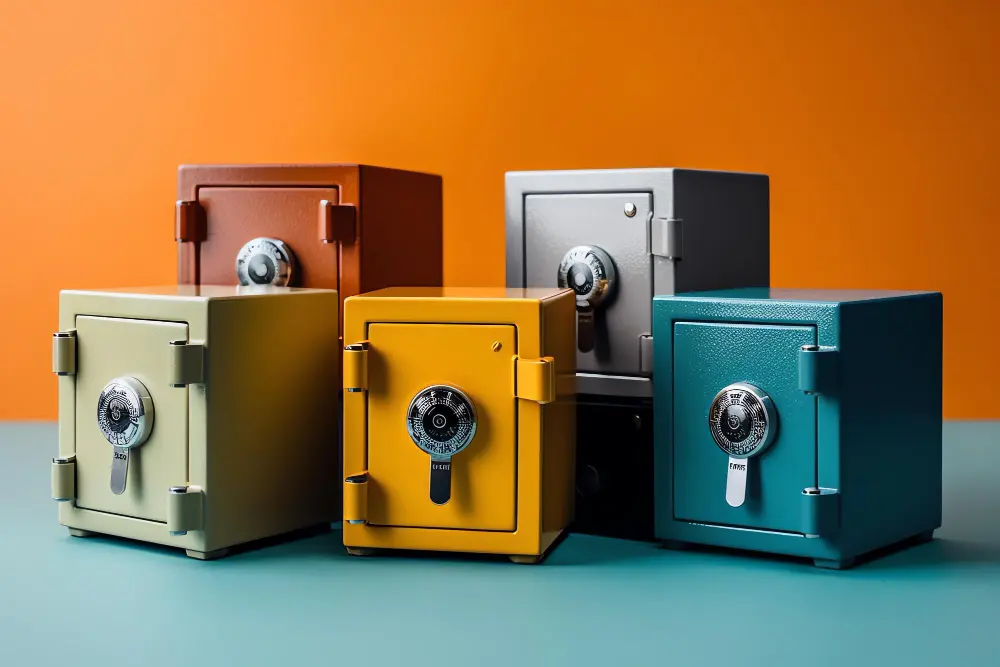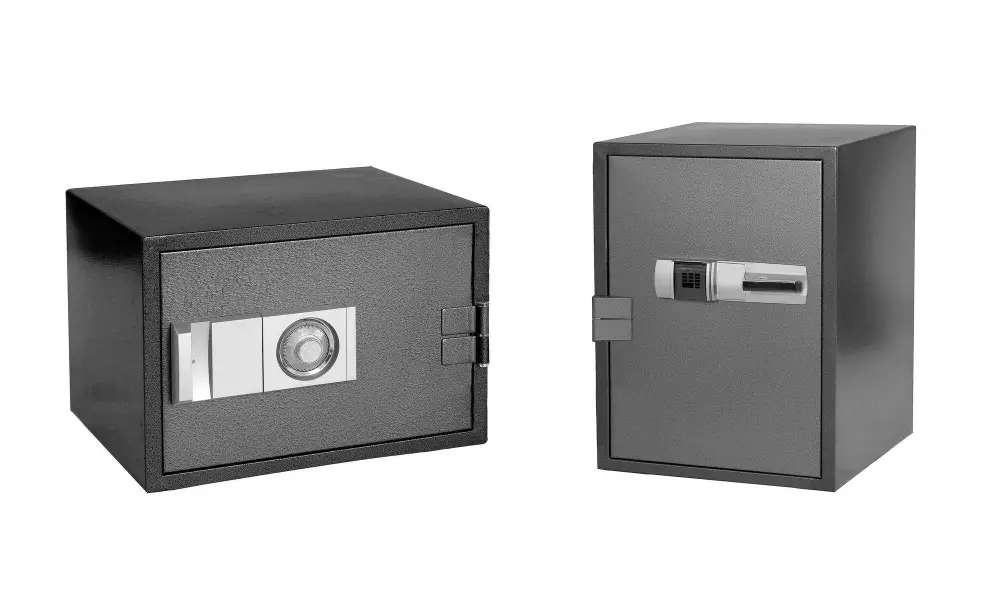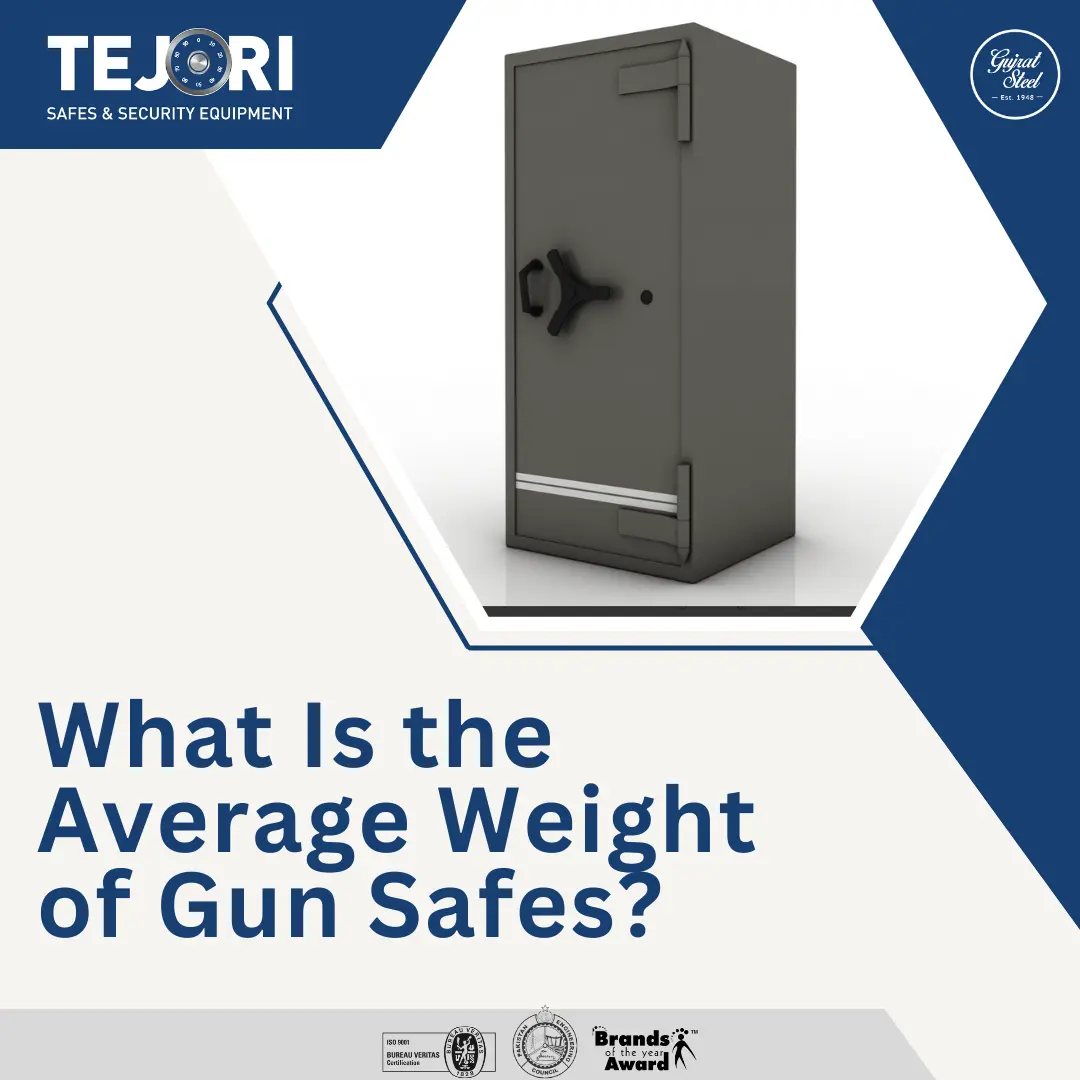Gun safes are essential for securely storing firearms and protecting them from theft, unauthorized access, and damage. But one of the key factors to consider when buying a gun safe is its weight. Weight affects everything from the level of security a safe provides to the logistics of its installation. In this guide, we’ll explore the average weight of different types of gun safes, factors influencing their weight, and what to consider when choosing a safe based on its weight.
01. Why Does the Weight of a Gun Safe Matter?
Weight is a crucial consideration when purchasing a gun safe for several reasons:
- Security: Generally, the heavier the safe, the more secure it is. Heavier safes are harder to move or steal, making them more resistant to break-ins.
- Fire Protection: Weight often correlates with fireproofing. Safes with high fire ratings typically contain more insulation materials, adding to their weight.
- Ease of Installation: Heavier safes require more effort to move and install, and might even require professional help, particularly if you’re placing them on upper floors.
- Structural Limitations: The weight of a gun safe can impact your home’s structural integrity, especially if placed on upper levels or areas with weak flooring.
Understanding these factors will help you find a safe that fits both your security needs and home setup.

02. Average Weight of Gun Safes by Type
The weight of a gun safe depends on its size, construction materials, fireproofing, and additional features. Here’s a breakdown of common types of gun safes and their average weights.
Handgun Safes
- Average Weight: 5 to 40 pounds
- Description: Designed to hold one or two handguns, these safes are compact and lightweight for easy access. They can often be mounted to surfaces or hidden in small spaces. Most handgun safes are built with minimal steel and insulation, which keeps the weight down.
- Best Use: Suitable for those who need quick access to a small firearm or prefer a portable, lightweight option.
Standard Gun Safes (12-20 Guns)
- Average Weight: 200 to 600 pounds
- Description: These medium-sized safes are some of the most popular for home use. They can hold up to 20 guns and often come with more advanced locking mechanisms, thicker steel, and fireproofing, which contribute to the increased weight.
- Best Use: Great for homeowners needing a secure, stationary storage solution with moderate fire and theft protection.
Large Gun Safes (20-50+ Guns)
- Average Weight: 600 to 1,200 pounds or more
- Description: Large gun safes are built to hold extensive firearm collections and other valuables. These safes have thick steel walls, reinforced doors, and advanced fireproofing. Their heavy weight makes them highly secure but also challenging to move and install.
- Best Use: Best for serious collectors or those who want maximum protection for a large number of firearms.
03. Factors That Affect the Weight of a Gun Safe
Several elements impact the weight of a gun safe, which can help you better understand why safes vary so much in weight.
01. Steel Thickness
Thicker steel makes safes heavier and more resistant to tampering. Entry-level safes often have steel around 12-14 gauge, while high-security safes can feature 7-10 gauge steel or thicker. Thicker steel adds weight and increases the safe’s security.
02. Fireproofing Material
Fireproof gun safes contain layers of fire-resistant insulation, usually gypsum or concrete amalgam, which adds significant weight. Safes with longer fire ratings (one hour or more) tend to weigh more than those with shorter ratings.
03. Size and Capacity
Larger safes naturally weigh more due to their increased dimensions and ability to hold more guns. Additionally, safes designed to accommodate multiple shelves or adjustable interiors often have reinforced structures, contributing to their weight.
04. Locking Mechanism and Security Features
Advanced locking mechanisms, such as biometric or electronic locks, may add slightly to the weight. However, these mechanisms mainly enhance security rather than contributing significant weight compared to mechanical locks.

04. Choosing the Right Gun Safe Based on Weight
When choosing a gun safe, consider the weight in relation to your needs and location. Here are a few guidelines:
01. Consider Your Floor’s Load Capacity
If you plan to place a heavy safe on an upper floor, check your home’s structural limits. Some flooring can support heavy safes, but extremely large safes (1,000 pounds or more) may require floor reinforcement.
02. Ease of Transport and Installation
Heavy safes are challenging to move, especially in homes with stairs or narrow hallways. If your safe weighs over 500 pounds, it may be worth hiring professionals for delivery and installation.
03. Security and Protection Needs
Generally, heavier safes offer better protection, but they also come with limitations in mobility. If theft protection is a priority, a heavier safe can deter theft by being difficult to move or break into. For fire protection, look for safes with significant fireproofing features, as these tend to be heavier.
Conclusion
The weight of a gun safe is influenced by its size, construction materials, and additional features like fireproofing and locking mechanisms. From lightweight handgun safes (5-40 pounds) to substantial full-size safes (600-1,200 pounds or more), there’s a wide range to suit different needs and budgets.
When choosing a gun safe, balance your security needs with practical considerations such as installation and placement. For most homeowners, a standard 200-600 pound safe provides excellent security without being excessively difficult to move or install. However, if you’re a collector or live in an area with higher security concerns, a heavier safe will offer enhanced protection for your firearms and valuables. Understanding the average weight of gun safes and the factors affecting it will help you select a safe that meets your needs without compromising on security. A well-chosen gun safe is not only a protective investment but also an essential part of responsible gun ownership.



